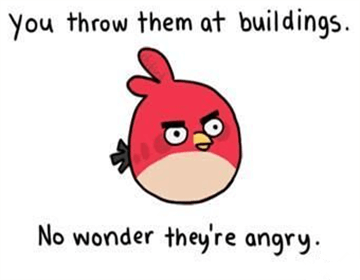Learn to use "no wonder" in Chinese
"No wonder" is an important phrase in Mandarin Chinese to learn if you’re going to travel or live in China, a country with abundant cultural traditions and surprises for its visitors.
As you’ll see, both words feature the character “怪 / guài”, which has a few meanings, including “strange”, “to wonder at” and “to blame”. For the purposes of this post, we’re going to focus on the definition “to wonder at”.
(1) 难怪 / nán guài

Literally “difficult + to wonder at”, “难怪” is a fairly straightforward word and fits into a sentence just as “no wonder” does in English:
Zhè shì yījiā yǒumíng de Běijīng kǎoyā diàn? Nánguài mǎnyuán le!
“这是一家有名的北京烤鸭店?难怪满员了!”
‘Aaah, so this is a famous Beijing Roast Duck restaurant?? No wonder it was totally full!’
Nánguài dàjiā jiābān. Jiézhǐ rìqī gǎi dào míngtiān le!
“难怪大家加班。 截止日期改到明天了!”
No wonder everyone is doing overtime. The deadline was changed to tomorrow!
Nánguài nǐ juéde yǒudiǎnr shānggǎn. Hái méi xíguàn zài Zhōngguó shēnghuó ba.
“难怪你觉得有点儿伤感。还没习惯在中国生活吧。”
It’s not surprising you feel a bit emotional. You’re still not used to life in China.
(2) 怪不得/ guài bù dé
As we know, 怪 means “to wonder at”. When joined by 不得, meaning “cannot” or “may not”, we have the phrase “no wonder”. Examples:
Guàibùdé nǐ zhème lèi – gānggāng pǎo wán le mǎlāsōng!
“怪不得你这么累 – 刚刚跑完了马拉松!”
It’s not surprising you feel tired. You just ran a marathon!
It’s not surprising you feel tired. You just ran a marathon!
Guàibùdé wǒ tù le. Wǒ duì hǎixiān guòmǐn.
“怪不得我吐了,我对海鲜过敏。”
No wonder I was sick. I’m allergic to seafood.
No wonder I was sick. I’m allergic to seafood.
So there you have it: two handy options for when the strange, unfamiliar or new suddenly makes sense.
Comments
Post a Comment